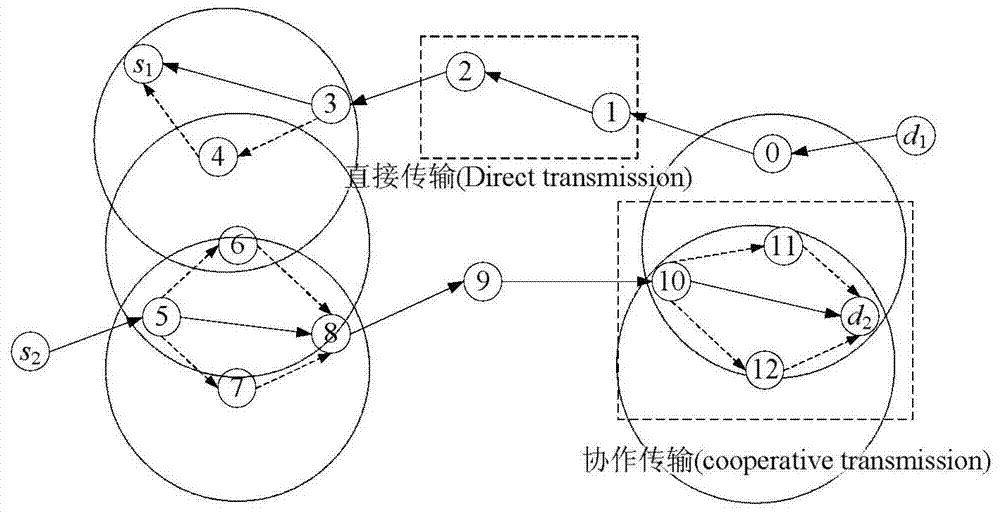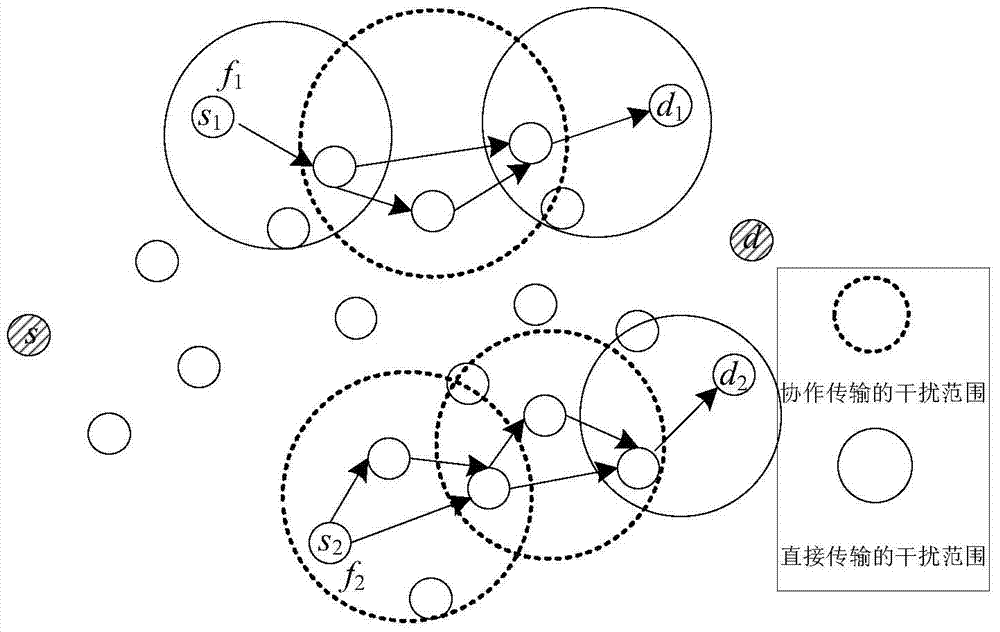An interference-aware multi-flow cooperative routing method
A multi-hop cooperative and routing technology, applied in the field of interference-aware multi-flow cooperative routing, to achieve the effect of reducing network delay and maximizing end-to-end throughput
- Summary
- Abstract
- Description
- Claims
- Application Information
AI Technical Summary
Problems solved by technology
Method used
Image
Examples
Embodiment Construction
[0037] The present invention calculates the available alternative channel set FCH (i, j) between two nodes i and j according to the following steps:
[0038] 1) If the number of node i’s working channel set CH(i) is less than the number of interfaces M, there are still idle interfaces for arbitrarily allocating channels, so node i can use the working channel set ACH(i) to take all the orthogonal channels, That is, ACH(i)={ch 1 ,ch 2 ,...,ch N}, otherwise the set of available working channels is equal to the set of working channels itself: ACH(i)=CH(i), similarly calculate the set of available working channels ACH(j) of node j;
[0039] 2) Then the candidate channel set FCH(i,j) of link (i,j) is FCH(i,j)=ACH(i)∩ACH(j)-{ch 1}. The present invention calculates the interference-aware cooperative routing index of the link between any two adjacent nodes i and j (i, j) according to the following steps:
[0040] 1) For any channel ch w ∈FCH(i,j), calculate the maximum available ...
PUM
 Login to View More
Login to View More Abstract
Description
Claims
Application Information
 Login to View More
Login to View More - R&D
- Intellectual Property
- Life Sciences
- Materials
- Tech Scout
- Unparalleled Data Quality
- Higher Quality Content
- 60% Fewer Hallucinations
Browse by: Latest US Patents, China's latest patents, Technical Efficacy Thesaurus, Application Domain, Technology Topic, Popular Technical Reports.
© 2025 PatSnap. All rights reserved.Legal|Privacy policy|Modern Slavery Act Transparency Statement|Sitemap|About US| Contact US: help@patsnap.com



